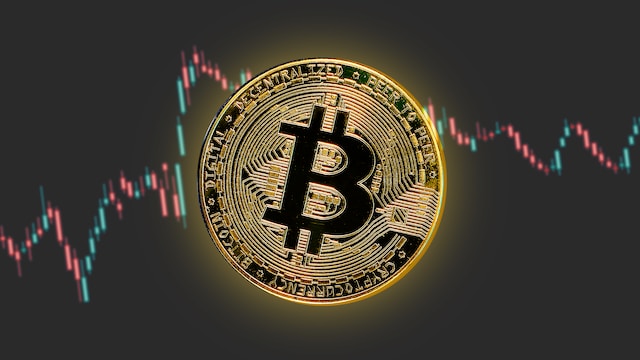This Potential Announcement Could Be the Next Big Move for Bitcoin
- Bitcoin Drops to $70,000. U.S. Government Refuses to Bail Out Market, End of Bull Market or Golden Pit?
- Gold rallies further beyond $5,050 amid flight to safety, dovish Fed expectations
- Bitcoin Bottom Debate: $70,000 or $50,000?
- A Crash After a Surge: Why Silver Lost 40% in a Week?
- Bitcoin Slips Below 75,000 Mark. Will Strategy Change Its Mind and Sell?
- Bitcoin Rout. Bridgewater Founder Dalio Publicly Backs Gold.

Once dismissed as an internet oddity, Bitcoin (CRYPTO: BTC) has evolved into a major asset class, recently surpassing the market cap of silver. With its unique properties (a finite supply and highly decentralized and secure network), the cryptocurrency is turning even its greatest skeptics into believers.
Now, as Bitcoin gains wider acceptance, a bold idea is emerging: Could the U.S. government start stockpiling Bitcoin? While this may seem far-fetched, the concept of a U.S. Bitcoin reserve is gaining traction and could potentially ignite a race among nations to accumulate the world's original and most valuable cryptocurrency.

Image source: Getty Images.
The idea of a U.S. Bitcoin reserve gets its start
Imagine telling someone in 2009, when Bitcoin first emerged, that this digital currency would one day be integral to a national strategy. It might have sounded like science fiction, but this concept entered mainstream politics in 2021 when Wyoming Senator Cynthia Lummis, an outspoken Bitcoin advocate, proposed that Bitcoin could bolster the weakening U.S. dollar.
Since then, Lummis has expanded on this idea, suggesting that a national Bitcoin reserve could benefit the United States in multiple ways. Not only could a Bitcoin stockpile help offset some of the national debt, but it could also position the U.S. advantageously if Bitcoin's value continues to rise and other nations begin to acquire it.
What once seemed improbable has gained traction over the past year as more political figures have embraced the idea. At the recent Bitcoin conference in Nashville, prominent speakers, including former presidential candidate Robert F. Kennedy Jr. and President-elect Donald Trump, voiced their support for a U.S. Bitcoin reserve. With Trump's victory in the election, the political momentum behind this initiative has intensified, and Lummis recently posted on X, confirming that a national Bitcoin reserve might be in the works.
WE ARE GOING TO BUILD A STRATEGIC BITCOIN RESERVE 🇺🇸 🇺🇸 🇺🇸
-- Senator Cynthia Lummis (@SenLummis) November 6, 2024
Game theory will start to unfold
The idea of a government stockpiling Bitcoin may still seem unlikely to some, but it aligns with a powerful concept in economics known as game theory. If the United States were to begin accumulating Bitcoin, it would likely set off a domino effect, pressuring other nations to follow suit to avoid falling behind. In game theory terms, this is a classic example of "prisoner's dilemma," where each player (or country, in this case) is incentivized to act to avoid the risk of losing a strategic advantage.
Some smaller nations, like El Salvador and Bahrain, have already added Bitcoin to their reserves, but if the U.S. were to endorse Bitcoin as a strategic asset, it could accelerate this trend significantly. With the endorsement of the world's most powerful economy, Bitcoin could go from niche asset to essential reserve.
A new era of digital arms race
If the United States were to initiate a Bitcoin reserve, it wouldn't just be a statement about the government's perspective on digital assets, it could potentially ignite an arms race among nations. Governments have vast financial resources at their disposal, and if they start to view Bitcoin as essential, this could be the rocket fuel that propels Bitcoin's value into the stratosphere.
Countries competing to secure as much Bitcoin as possible would introduce unprecedented demand, pushing prices up rapidly and potentially transforming Bitcoin into one of the most coveted assets worldwide.
While Bitcoin's adoption at the government level is still in its infancy, the progression of this idea from niche to mainstream shows how rapidly the landscape is evolving. The simple fact that it is even being discussed provides a glimpse into the signs of the times and what may be in store for the world's original cryptocurrency.
Only time will tell, but remember, this is Bitcoin. Stranger things have happened.
Read more
* The content presented above, whether from a third party or not, is considered as general advice only. This article should not be construed as containing investment advice, investment recommendations, an offer of or solicitation for any transactions in financial instruments.








